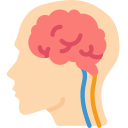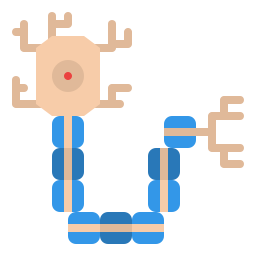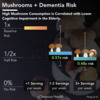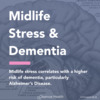Magnesium
The Link with Alzheimer's Disease
Magnesium as a Nutrient
Alzheimer's Disease and Diet

Magnesium and Alzheimers
The way that diet affects Alzheimer's Disease risk is still unclear. One of the potential mechanisms examined is magnesium.







"In conclusion, AD seems to be associated with lower Mg status when compared to HCs, but not to medical ones, probably due to the scarcity of studies about these patients. Since both AD and poor Mg status are 2 common conditions in older people, further studies are needed to better understand the real pathophysiological role of Mg in AD."
However, this correlation doesn’t necessarily indicate that magnesium protects against Alzheimer's Disease. It only shows a potential link.





"In summary, we found that simultaneous intraperitoneal injections of magnesium sulfate significantly enhanced the brain magnesium levels, improved synaptic efficacy, and prevented memory and learning impairments through modifications of synaptic proteins and Tau phosphorylation in ICV-STZ rats. Our findings provide novel insights suggesting that magnesium treatment at the early stage may decrease the risk for cognitive impairment in AD."
Rats who were given magnesium showed stronger neurons in the memory center of the brain. The rats also showed better memory and cognition, as measured by their ability to go through a maze.
At this point, we still need more research in humans to see whether magnesium supplements are useful for preventing Alzheimer’s Disease. What we do know is that diet plays a significant role in brain health. Eating a healthy, balanced diet so that you don’t become deficient in nutrients such as Magnesium is one of the best ways to stay healthy in old age.

#nutrition
Scroll for more ->





#magnesium
Scroll for more ->
#dementia
Scroll for more ->





#new
Scroll for more ->




















